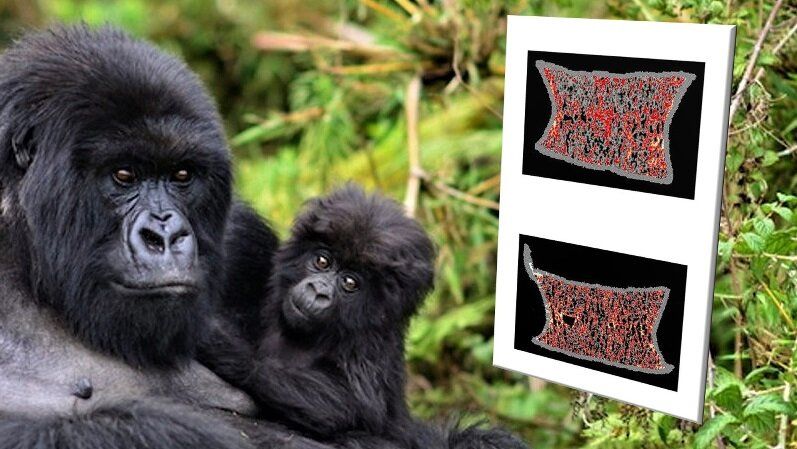In a study of gorilla skeletons collected in the wild, Johns Hopkins Medicine researchers and their international collaborators report that aging female gorillas do not experience the accelerated bone loss associated with the bone-weakening condition called osteoporosis, as their human counterparts often do. The findings, they say, could offer clues as to how humans evolved with age-related diseases.
The study was published on Sept. 21, 2020, in Philosophical Translations of the Royal Society B.
“Osteoporosis in humans is a really interesting mechanical problem,” says Christopher Ruff, Ph.D., professor at the Center for Functional Anatomy and Evolution at the Johns Hopkins University School of Medicine. “In terms of natural selection, there is no evolutionary advantage in developing bone loss with aging to the point of a potential fracture. By looking at close relatives of humans on the evolutionary tree, we can infer more about the origins of this condition.”
